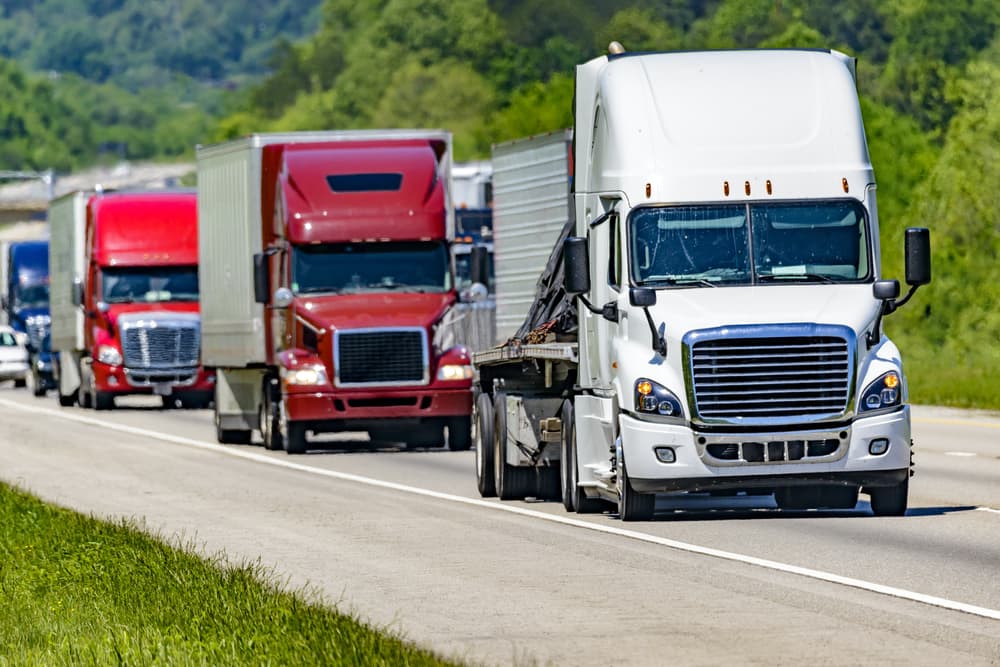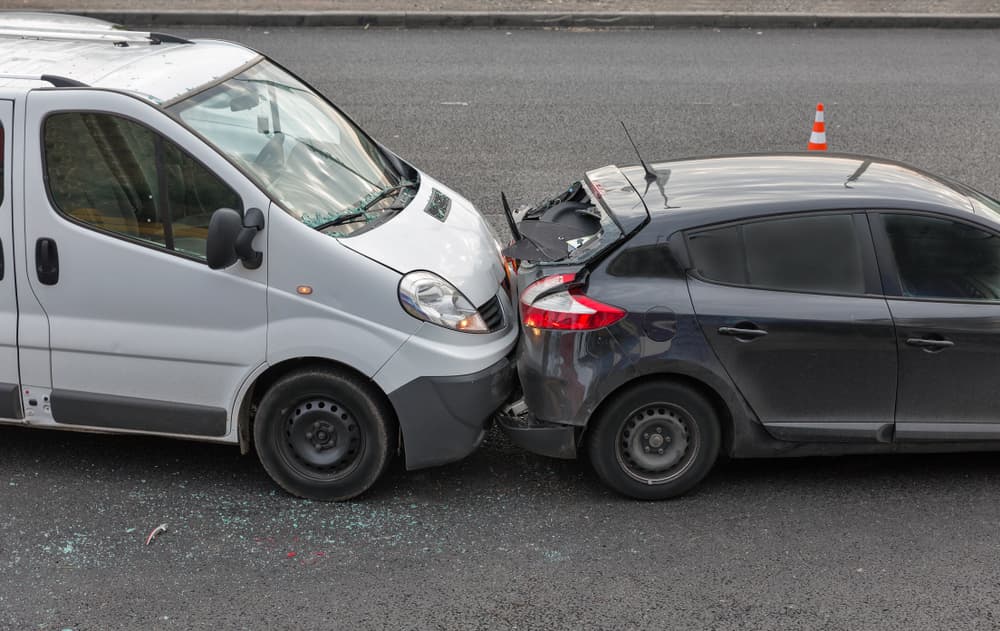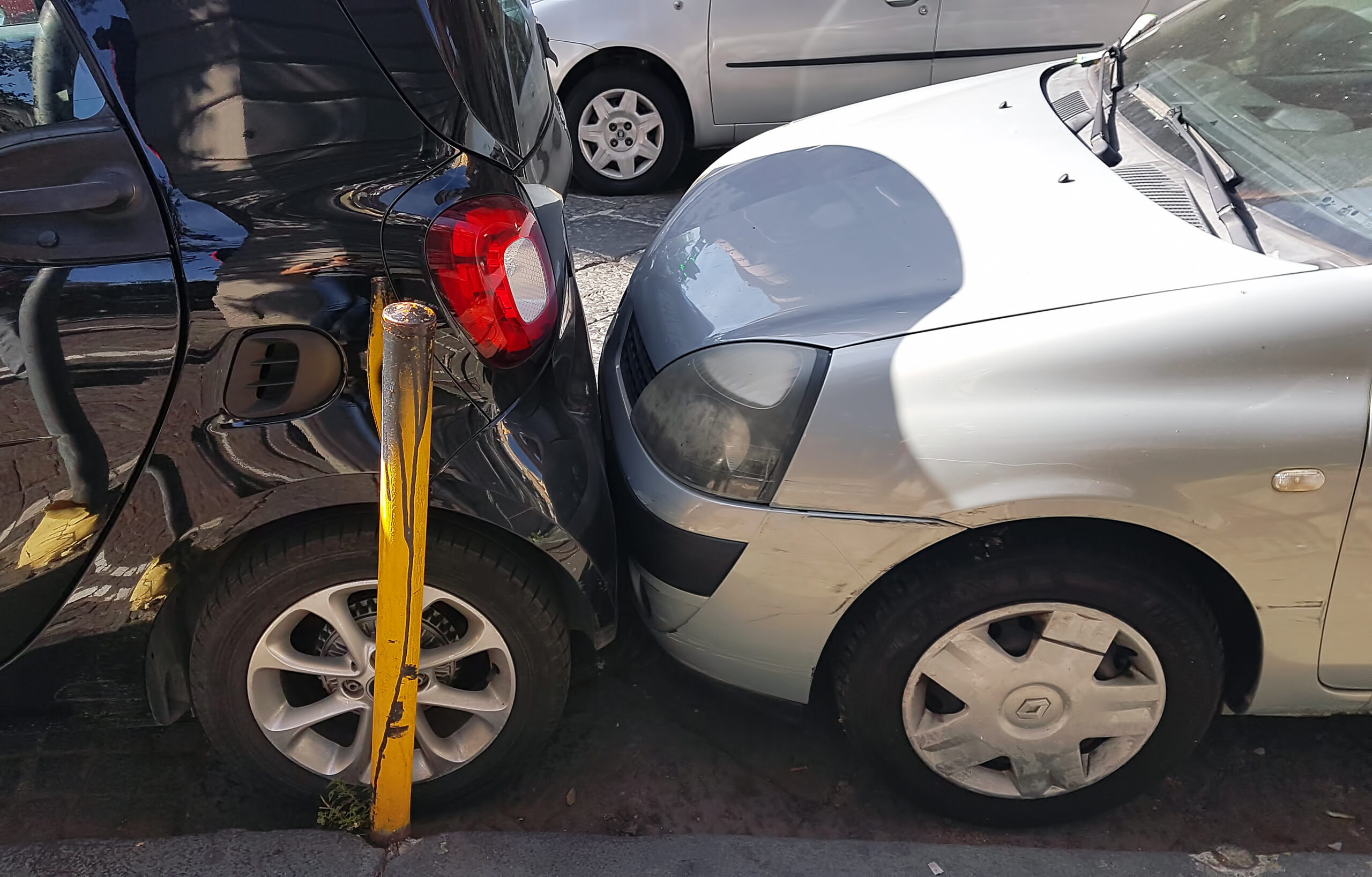Different Trucks Pose Different Dangers (Tankers, Cargo, Garbage, Dump)
The Dangers of Different Types of Commercial Trucks
Every day we are surrounded by various kinds of
commercial trucks on the road. As consumers, there are countless products we use in our daily lives that may have not noticed were transported by so many different types of commercial trucks. We also rely on trucks to dispose of our trash, to deliver fuel to gas stations, and to stock our grocery stores.
But as a regular car driver, these massive vehicles can pose a serious risk to our safety. Different types of commercial trucks have their own unique sets of potential hazards. Getting into an accident with any one of these large vehicles can be devastating, both physically and financially.
Common Types of Trucks on Illinois Roads
There are hundreds of different types of commercial trucks which can all
cause serious accidents. These range from common semi trucks carrying new TVs to dump trucks hauling materials for a new house. The following is a breakdown of the most common types of commercial trucks and the unique hazards they pose.
Semi Trucks and Trailers
Semi truck is the common term used for large trucks with attached cabins that tow enclosed boxed trailers. These trucks transport over
70% of the goods we use in the United States each year.
Semi trucks can weigh as much as 80,000 pounds and be 70 feet long. When compared to an average car that is 3,000 pound and 15 feet, it’s clear that accidents between semi trucks and standard vehicles can be particularly devastating for the car passengers.
A semi truck’s massive size also makes it more difficult to control. At 55 miles per hour, a semi truck driver needs 450 feet to come to a complete stop. That’s 1.5 times the length of a football field. Compare that to a passenger car which needs 120 feet to fully brake at 60 miles per hour.
Because of their size, semi trucks also have large blindspots and a wide turning radius, which is another factor that makes driving near them dangerous.
Flatbed Trailers
Flatbed trucks routinely transport cargo that won’t fit into a typical box trailer. These items can be difficult to secure which can cause cargo to shift or even to fall off the truck.
The unusual shape of a flatbed truck’s cargo can also cause it to be unbalanced which may make it difficult for a driver to maintain control.
If a
flatbed is involved in a collision, it’s not uncommon for their cargo to come loose, which can create further hazards for those who are involved in the accident and other drivers on the road.
Wideload Trucks
Wideload trucks have cargo that exceeds the weight and/or dimensions of what is allowed on the road. Illinois requires
permits for oversize loads but they are still a common sight on highways or backroads.
Wide load trucks have difficulty turning corners, adjusting to downward and upward slopes, and seeing other vehicles. The heavy cargo also puts additional strain on the truck’s engine, tires, and other parts which may cause the vehicle to become a hazard for those around it.
Box Trucks and Delivery Trucks
Box trucks and
delivery trucks are large commercial trucks in which the cargo area is attached to the chassis rather than towed.
Box trucks have a lot of blind spots, are more difficult to stop, and have a much wider turning radius than passenger vehicles.
Box trucks are a common choice for moving companies and rental agencies, like Uhaul. This means they’re often rented and driven by people who don’t have experience handling a larger vehicle which can be a serious hazard for other drivers.
Tankers
Tanker trucks are semi trucks that tow large cylindrical tanks on their trailers. As the name suggests, tankers transport liquids. Tanker trucks require a very specific type of training because of the way that liquid shifts while the vehicle is moving.
These tanks also commonly carry hazardous contents like alcohol, gasoline, or industrial chemicals. These highly-flammable can be extremely dangerous when they are involved in a collision.
Car Transporters
A typical car transporter carries between five and nine cars at a time. If the vehicles being towed aren’t properly secured, they can shift or roll off into traffic unsuspectingly.
The weight of car transporters varies depending on how many vehicles they’re transporting during a certain trip. Drivers have to adjust to the varying weight of these trucks, which is one reason they’re more difficult to control.
Dump Trucks
Dump trucks haul and release loads of heavy materials such as sand, gravel, and concrete. They commonly weigh several tons and can be very heavy when filled with material like rocks.
Standard-sized cars and SUVs are no match for dump trucks in the event of a collision. These trucks are often built like tanks to handle the beating they take on construction sites on a daily basis.
Dump trucks can also pose a hazard when their exposed cargo flies out of the back. It is not uncommon to hear sand or small gravel hitting your vehicle when you are behind a dump truck, but if that material is larger it can cause a serious issue.
Hazmat Trucks
Hazmat trucks transport sensitive materials such as gasses, explosives, and dangerous chemicals. These trucks can obviously cause major issues for everyone involved if the materials are leaked during a collision.
City Busses
The final common type of commercial truck on this list is a city bus. Most people do not think about
busses as being dangerous but they can be as much of a hazard as any other large truck. A Chicago Transit Authority (CTA)
bus accident happens every 1.5 days. Busses frequently stop and move in and out of traffic which can make them unpredictable to drive around. To make matters worse, bus drivers have significant blindspots that make it difficult to safely re-enter traffic after each stop.
Contact an Experienced Chicago Truck Accident Attorney
If you were involved in an accident with any type of truck, hiring an experienced attorney can make all the difference in getting the
proper amount of compensation you need.
Abels & Annes has decades of experience handling truck accident claims and we can help you to get the maximum amount of compensation so you can rebuild your life.
Abels & Annes can help you with your truck accident case by:
- Investigate your accident and collect important evidence.
- Handle the paperwork and filing.
- Explore the multiple different parties that could be responsible.
- Negotiate with the insurance companies on your behalf.
- File a lawsuit if necessary.
When you choose our truck accident attorneys you get a law firm with a successful track record in handling truck accident cases, personal attention so you know what is going on, and our reputation with the insurance companies for taking our client’s cases seriously.
If you've been injured in a truck accident, having the right attorney can help you recover the compensation you deserve. There's no fee unless you recover money for your claim. Contact Abels & Annes to set up a free consultation by calling (312) 924-7575 or filling out
our online form.
David Abels
Partner
David Abels has carved a niche for himself in the personal injury law sector, dedicating a substantial part of his career since 1997 to representing victims of various accidents. With a law practice that spans over two decades, his expertise has been consistently recognized within the legal community.
Author's Bio



